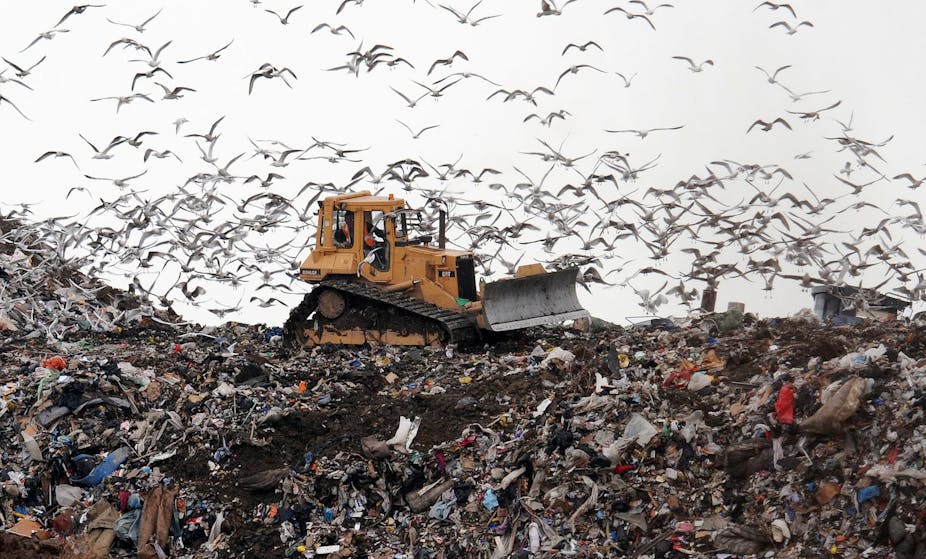The food system is perhaps the most vital component of our modern industrialised world. Without food in shops, it’s fair to say society would unravel in a matter of days.
The food industry is in many ways a success story, an achievement to marvel at. It provides the majority of people on this planet with life sustaining, affordable food in the places they reside. As a species, we have largely broken free of the burden of food production, hunting and foraging that preoccupied our ancestors and are able to devote our time and resources to other aspects of human activity that bring progress. And yet the system we all rely on is incredibly inefficient.
Leaving to one side the negative environmental impact, the estimated one billion people who are under-nourished and further one billion overweight, it has been estimated that between 30 and 50% of all food produced worldwide is not eaten - it never makes it to the table.
In the past it could be argued that this material inefficiency was affordable in an era of cheap food. But we are already experiencing the beginning of a new era of stress on the food system as demand grows and environmental limits are reached.
Global food prices continue to rise, at a rate beyond the cyclical peaks and troughs inherent in the system. Global population growth will see a further two billion mouths to feed over the next 40 years. Complicating matters is the emergence of a voracious demand for meat from growing economies such as China and India, and serious uncertainties around global warming.
You’d be forgiven for thinking that the solution to this impending crisis is to eat what’s in the fridge before it expires. But while there has been a lot of attention paid to consumer food waste recently, the majority of wastage actually occurs elsewhere.
According to a 2011 study from the UN’s Food and Agriculture Organisation, approximately two thirds of food waste in Europe occurs in the supply chain between production and retail. In developing nations this proportion can be far greater - a report this year by the Institute of Mechanical Engineers on the subject highlighted how some countries in South East Asia can lose as much as 80% of their rice crop to wastage.
In the UK, recycling charity Wrap estimates that some 15 million tonnes of food waste is created each year. Of this, 7.2 million tonnes occurs in the home with the vast majority of the rest accruing in the supply chain.
The cause of these losses and their solutions vary. It’s hard to avoid crop failure due to poor weather conditions. Human error, even within high-tech food supply chains, is hard to eliminate. But at the other end of the scale is wastage in the name of consumer choice.
Critics argue supermarket chains’ refusal to accept cosmetic blemishes and variations in shape sees perfectly edible, nutritious food binned. Although reliable statistics are thin on the ground, there can be little doubt that the quest for aesthetic uniformity, the bewildering range of food available in large retailers and overzealous “best before” and “use by” labels leads to wastage that is entirely avoidable.
Let’s wrap this up
Tackling this requires a multi-pronged approach. Consumers undoubtedly have a responsibility to reduce their personal food waste levels through making better decisions when buying and planning meals. This needs to be supported by consumer education and better labelling. Both government and industry have a role in this, as do groups such as WRAP and This is Rubbish.
But government and industry have to practice what they preach. Public sector catering in the UK in schools and hospitals is a billion-pound industry with its own environmental burden. This provides an opportunity to demonstrate the business benefits of a more sustainable approach.
However it’s the food industry that is crucial to reducing waste, more than any other group, because of major retailers’ market power and direct relationship with consumers. Initiatives such as the Courtauld Commitment provide encouragement, but progress is hampered by lack of data and transparency.
The economic crisis illustrates how the era of voluntary agreements and self-regulation has become redundant, dangerously so, in the face of the economic, environmental and social challenges facing Britain and the world.
The recent horsemeat scandal is an illustration of the lack of transparency in the food sector. Industry food waste practices could prove just as repulsive to consumers but, as it stands, the lack of reporting requirements limit public understanding and therefore genuine pressure on industry to change.
Mandatory reporting (as called for by This Is Rubbish’s “Counting What Matters” report launched this week) would empower market forces - that sacred cow of government rhetoric - allowing consumers to move beyond fridge guilt to positively support a more efficient and sustainable food system.

